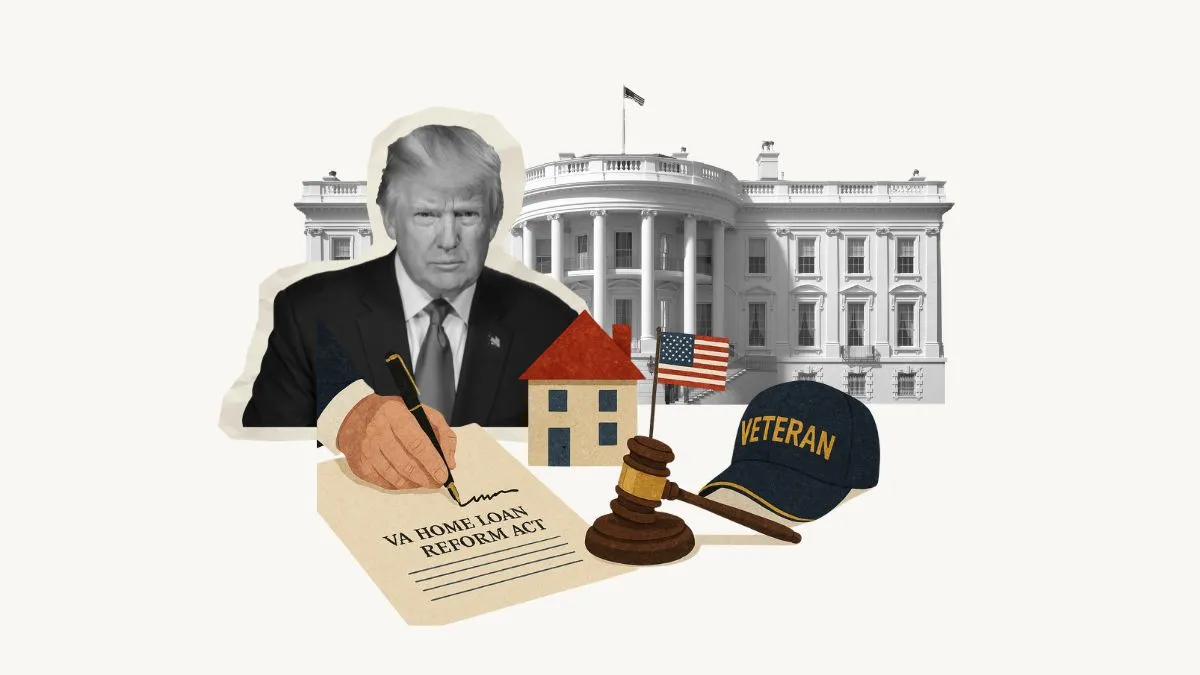

As the real estate industry prepared for the business practice changes outlined in the National Association of Realtors’ (NAR) nationwide commission lawsuit settlement agreement, one of the biggest questions was how the changes would impact veteran homebuyers wishing to use their loan benefit from the U.S. Department of Veterans Affairs (VA).
The NAR settlement requires agents to have a signed buyer agency agreement with every buyer that spells out how much the agent will be paid in a transaction. That led many to fear that buyers using a VA loan would be disadvantaged.
At the time, VA policy allowed a veteran to use a buyer’s agent to purchase a home; however, they could not “under any circumstances, be charged a brokerage fee or commission in connection with the services of such individuals.” Unless the VA took action, it was assumed that VA buyers who wanted to use their loan benefit might have to forgo professional representation unless they found a home where the seller was willing to pay the buyer’s agent’s compensation.
“In Virginia we have a huge veteran community,” John Finn, Jr., the senior managing broker of United Real Estate Richmond, says. “The fact that veterans could possibly lose access to professional representation by a real estate agent caused a lot of concern.”
Much to the industry’s relief, in May 2024, the VA announced temporary guidance, under which homebuyers using VA loans would be allowed to pay buyer’s agent’s compensation out of pocket if necessary or desired.
“There was a lot of trepidation as to how the changes were going to affect veterans, especially before the VA came out with the guidance,” Patton Gade, UMortgage’s national director of military lending, says.
While this news was a comfort to the industry and veterans, concerns lingered as the guidance remained temporary for over a year.
This changed in late July, when President Donald Trump signed the VA Home Loan Program Reform Act into law. Amongst many things, this law codified the VA’s temporary guidance, permanently allowing veterans to use the services of a buyer’s agent even in transactions without seller-paid buyer’s agent fees.
“The fact that they have codified this into law is such a relief, especially since there was a period where we — and I’m sure other real estate professionals across the country — just didn’t know what to do,” Finn said.
Despite the relief felt, mortgage professionals say they were not concerned that the VA would get rid of the temporary guidance.
“Of course there was a lot of trepidation and uncertainty as it relates to VA loans, but in my mind, looking at [who was] leading at the VA, I don’t think there was ever a question of not finding a way to make this solution permanent,” Chris George, the Mortgage Bankers Association’s California Ambassador and the president and CEO of CMG Financial, says.
Says Gade, “We’d never send a soldier into battle without support, but that is what we were looking at if the VA didn’t issue its temporary guidance. I think that would have then opened up the back door to even more myths and misconceptions about VA loans.”
Mortgage industry leaders say that despite all of this concern and trepidation, things worked out as well as they could have.
“If you… look at the last five years in the mortgage industry, we’ve gone from COVID, to forbearance, to record low interest rates to rates rising at a record pace. We’ve gone from people saying that the NAR settlement was going to be the end of real estate [as] we know it, to ‘hey, we are all still here,’” George says.
Gade, who is the nation’s most prolific VA LO, says that in the “hundreds” of VA loans he has worked on in the past year, the veteran buyer has only had to pay their own buyer’s agent fees in a “handful” of cases.
“[In] the vast majority of them, the seller is willing to cover the compensation of the buyer’s agent, so it hasn’t been as big a deal as we thought it was going to be,” he adds. “I think the market adjusted nicely. When we actually got boots on the ground, a lot of people lost a lot of sleep, and it turned out to not be nearly as big of a deal as we thought it was going to be.”